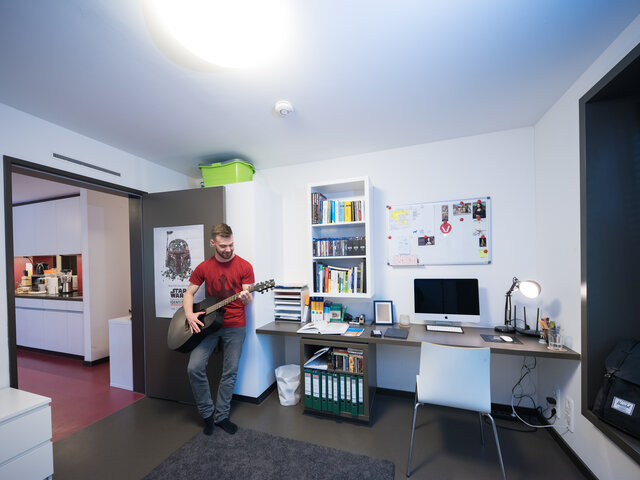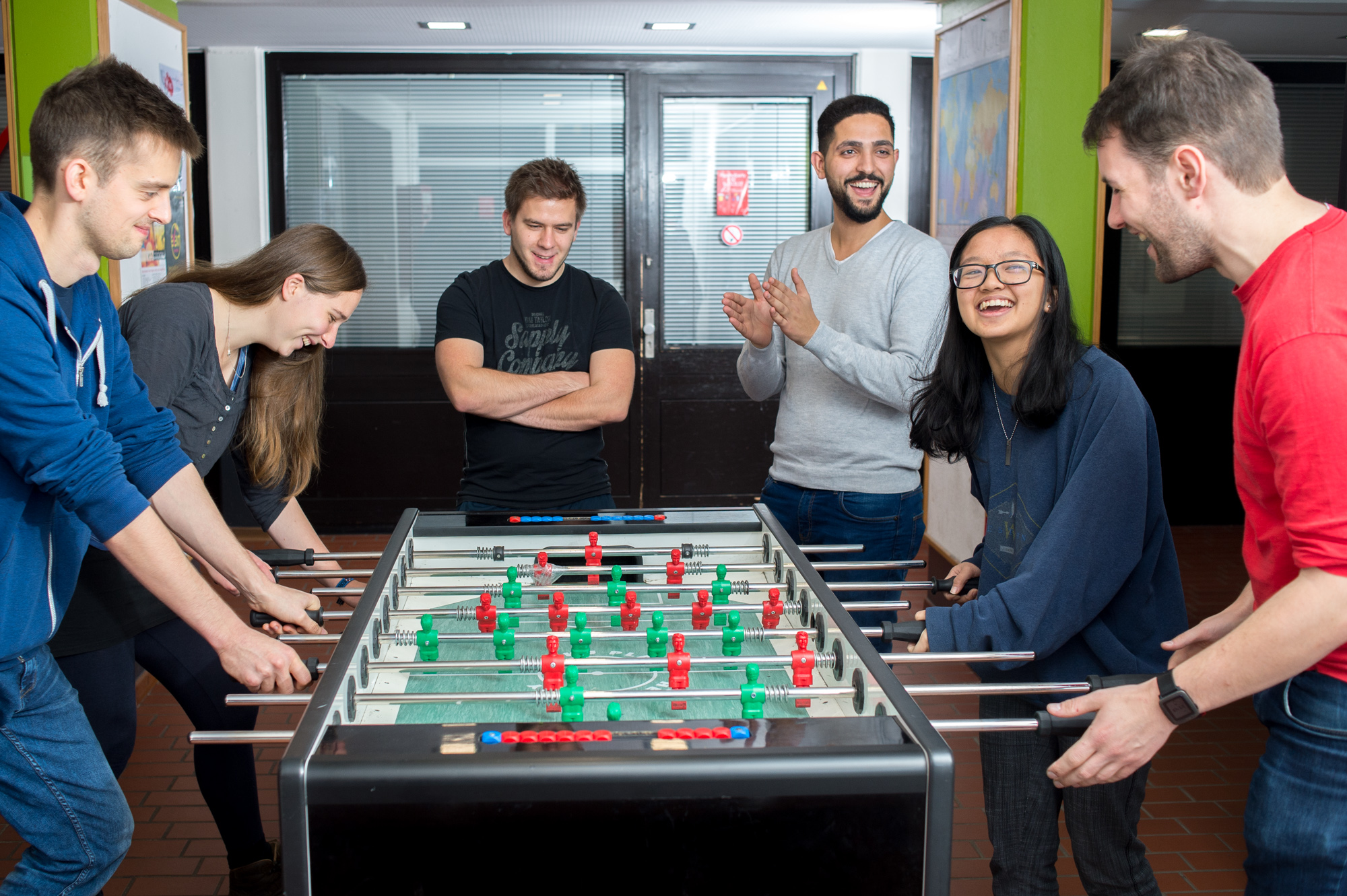
You will receive the key for your new home from the first working day of the month in which your tenancy agreement begins.
Please make sure to contact your residence hall manager before your arrival and arrange with him/her where and how you can pick up your key. You can find your contact person at your residence hall. Search for a residence: (?)
Yes, that is possible. You can extend your period of residence up to the maximum period of residence if you have an important reason for doing so and are still enrolled. An important reason is for example
- Illness (medical certificate required)
- Committee activity (confirmation of the AStA or the university necessary)
- Examination
- Activity in the house self-administration (confirmation of the dormitory management necessary)
You will usually get your deposit back around eight to ten weeks after your contract ends. However, we may hold your tenancy deposit for six to twelve months to check if there are any outstanding debts. Outstanding debts may include:
- Arrears with the rent payment (net cold rent).
- Arrears with the payment of service charges (operating costs)
- Damage to the living space caused intentionally or unintentionally by improper handling that must be repaired
- Agreed cosmetic repairs (this also includes final cleaning) were not carried out before moving out.
If there is an outstanding debt or damage has occurred after the end of the tenancy, we may retain part or even all of the rent deposit.

Home self-management
Each apartment house has a house self-administration (HSV). It is elected by the tenants of the house. It keeps in touch with the student union, organizes house meetings and parties and also intervenes once in a while to mediate if there are differences of opinion. The HSV works on a voluntary basis. If you have ideas for the HSV or would like to get involved, just get in touch with one of the HSV members. You can find the contact persons of the HSV, times and meeting places on the notice board in your hall of residence.

If something is broken or does not work properly, you can inform us by filling out a damage form. You will find the forms in your residence, usually in freely accessible boxes in the entrance areas or next to the residence management offices. You then simply drop the completed damage report into the mailbox of the apartment building management.
Outside our business hours there are emergency services you can contact. For heating and plumbing: Company GTM Dobrinski, Tel. (05 11) 2 79 05 62 Key emergency service: Company GTM Dobrinski, Tel. (05 11) 2 79 05 62 (Please note the price list!) For electrotechnical systems: Company Mahrholdt, Tel. (05 11) 45 01 79 80.
In both cases, you are not insured by the Studentenwerk. You should definitely take out private liability insurance and, if necessary, household insurance.
Liability insurance covers damages that you cause to us, to other tenants in the building or to another third party, for example through fire or water. If you do not have liability insurance, you have to pay for the damages yourself!
With a household insurance you insure your property, which you brought into the house, against dangers, which result in a destruction, damage or a loss - for example with a burglary. This is not covered by our insurance, and in the event of a claim you will have to bear the costs yourself.
We recommend that you take out both insurances. There are favourable rates for students. You can find more information on this topic at the Consumer Advice Centre of Lower Saxony.
Tutors for international students
In all of our residences there are tutors for international students who can be reached regularly during consultation hours and offer a variety of assistance. Whether it's about immigration law, job-related or study problems - our tutors are there for you! You can find their contact details and office hours on the notice board in your residence hall.

